
Find Help
More Items From Ergsy search
-

How does two-factor authentication help protect my account?
Relevance: 100%
-

Can enabling two-factor authentication help if my email is hacked?
Relevance: 94%
-
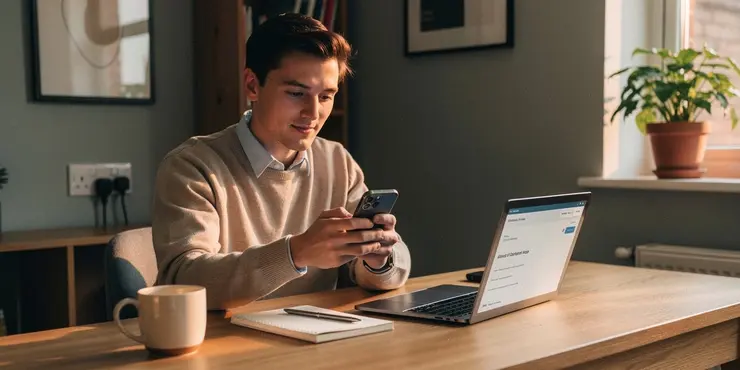
What is two-factor authentication (2FA) and should I use it?
Relevance: 92%
-

What is two-factor authentication?
Relevance: 86%
-

How do I secure my online accounts?
Relevance: 64%
-

Will changing my password secure my hacked account?
Relevance: 63%
-

Can Monzo or Revolut accounts be hacked easily?
Relevance: 57%
-
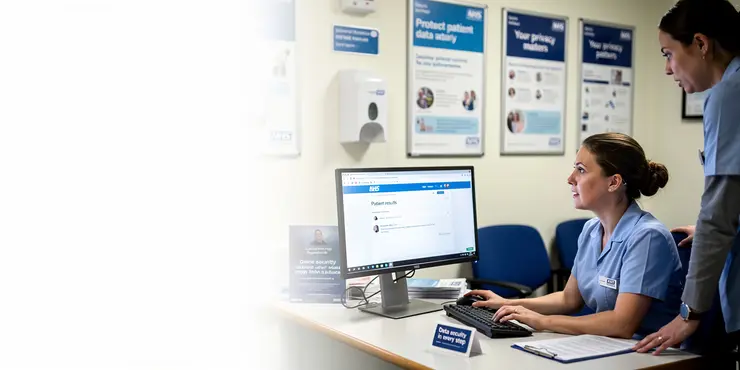
Can antivirus software protect my email from being hacked?
Relevance: 56%
-

How can I recover a hacked email account?
Relevance: 56%
-
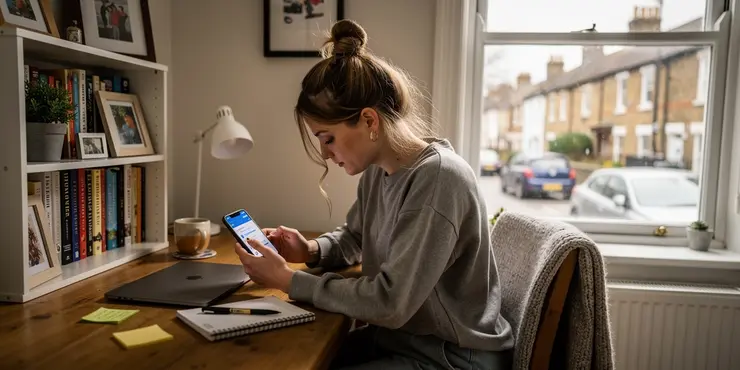
How can I protect my privacy on my mobile phone?
Relevance: 54%
-

How do I know if my social media accounts have been hacked?
Relevance: 53%
-

What does it mean if my friends receive spammy messages from my account?
Relevance: 53%
-

What preventive measures can I take to protect my email from being hacked?
Relevance: 52%
-

What signs indicate that my social media account might be hacked?
Relevance: 48%
-

How can I check recent login activity on my email account?
Relevance: 47%
-
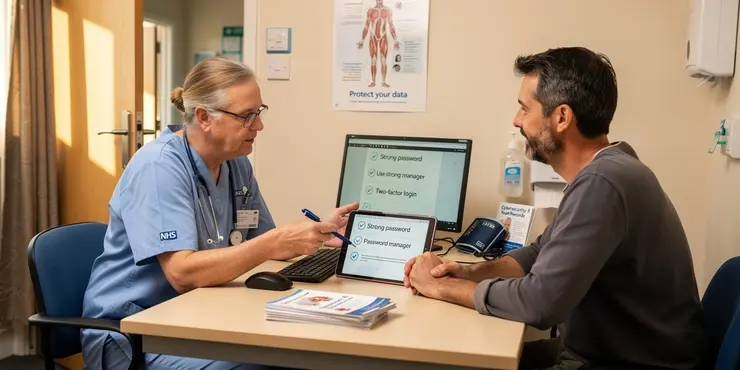
What steps can I take to prevent future hacks?
Relevance: 46%
-
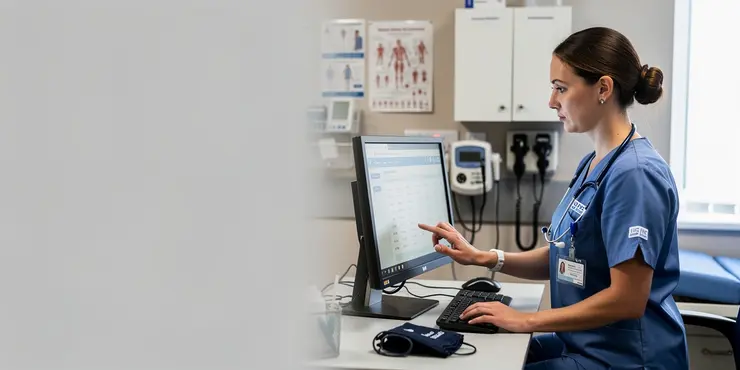
How can I check recent login activity on my social media accounts?
Relevance: 45%
-

What should I do if I notice suspicious login attempts?
Relevance: 44%
-

Are there any tools provided by social media platforms to increase security?
Relevance: 44%
-

Why is it important to update my account recovery information?
Relevance: 43%
-

Why have my email account recovery options changed without my knowledge?
Relevance: 43%
-

What should I do if I find my information in a data breach?
Relevance: 43%
-

Can using the same password across accounts increase the risk of hacking?
Relevance: 42%
-

Should I change my passwords regularly?
Relevance: 42%
-

What should I do if I can't log into my account anymore?
Relevance: 42%
-

Crypto Scams Exposed - Protect Your Investments Now!
Relevance: 42%
-

What are the risks of ignoring a hacked account?
Relevance: 42%
-

Why are emails often targeted in data breaches?
Relevance: 42%
-

How can I secure my email after a hack?
Relevance: 40%
-
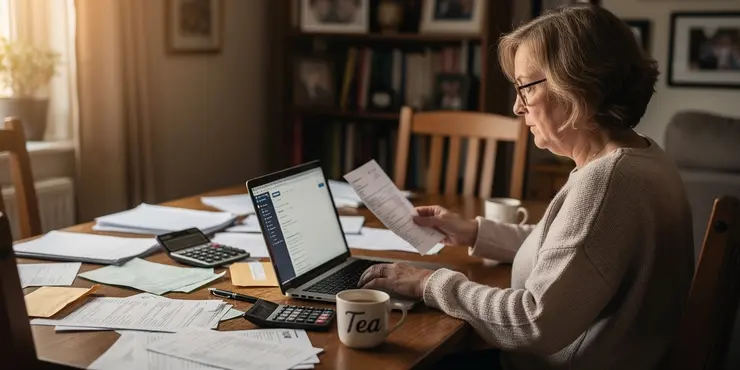
Should I switch my savings account, checking account, or both?
Relevance: 39%
-

How do I know if my email has been hacked?
Relevance: 39%
-

How do I know if my password has been hacked?
Relevance: 39%
-

Can unexpected calendar events be a sign of a hacked email?
Relevance: 38%
-

How can phishing attacks lead to social media hacks?
Relevance: 38%
-

Can a sudden decrease or increase in followers indicate a hack?
Relevance: 38%
-

Why does my email appear to be sending spam?
Relevance: 38%
-

Why am I receiving password reset emails I didn't request?
Relevance: 38%
-

How should I secure my mobile phone?
Relevance: 38%
-

What are some signs that my email might be hacked?
Relevance: 37%
-

How can I educate myself about potential online threats?
Relevance: 37%
Introduction to Two-Factor Authentication
Two-factor authentication (2FA) is a security process designed to increase the protection of your digital accounts. By requiring a second form of verification in addition to your password, it provides an additional layer against unauthorised access. In recent years, the rise of cyber threats has made 2FA an essential tool for safeguarding personal and business accounts.
How 2FA Works
Typically, two-factor authentication requires users to confirm their identity through two different methods. The first method is usually something you know, like your password. The second method is something you have, such as a smartphone app that generates a time-sensitive code, or something you are, like a fingerprint scan. This dual verification process ensures that even if your password is compromised, your account remains secure.
Types of Two-Factor Authentication
There are several types of 2FA methods commonly used by UK users. One of the most popular is SMS-based 2FA, where a code is sent to your mobile phone that you then enter online. Authenticator apps, such as Google Authenticator or Microsoft Authenticator, generate verification codes that are updated every 30 seconds. Hardware tokens, like YubiKeys, are another option that provide a physical device for authentication. Biometrics, including face recognition and fingerprint scanning, are also increasingly used for 2FA.
Benefits of Using 2FA
The primary benefit of 2FA is the enhanced security it provides by adding an additional layer of defence. This makes it significantly harder for attackers to gain access to your accounts, as they would need both your password and the second factor. It also helps to protect sensitive information, reduce fraud and identity theft, and increase the confidence of users who manage online transactions.
2FA and Cybersecurity in the UK
Cybersecurity is a growing concern in the UK, with organisations and individuals increasingly targeted by cybercriminals. The National Cyber Security Centre (NCSC) advises the use of 2FA as an effective measure against such threats. Implementing 2FA is particularly important for services such as online banking, email, and social media, where personal data is often stored.
Conclusion
Two-factor authentication is a crucial security measure that helps protect your accounts from unauthorised access. By requiring both a password and a second form of verification, 2FA makes it significantly more difficult for cybercriminals to exploit your information. As cyber threats continue to evolve, adopting 2FA as a standard practice strengthens your online security and provides peace of mind in an increasingly digital world.
What is Two-Factor Authentication?
Two-factor authentication (2FA) is a way to keep your online accounts safe. It uses two steps to make sure it’s really you who is logging in. First, you use your password. Then, you need to do one more thing to prove it’s you. This keeps hackers out of your accounts.
How Does 2FA Work?
You need to do two things to log in. First, type your password. Second, you use something extra like your phone or a fingerprint. This makes sure even if someone steals your password, they still can't get in without the second step.
Different Ways to Use 2FA
There are different ways to do 2FA. One way is to get a code sent to your phone by text message. Another way is to use an app on your smartphone that gives you a special code. Some people use a device called a hardware token, which you can hold in your hand. You can also use your face or fingerprint as a second step for logging in.
Why Use 2FA?
2FA makes your accounts much safer. It's harder for bad people to get into your accounts because they need more than just your password. This means your important information is kept safe, and you feel better about doing things online.
2FA in the UK
Keeping safe online is important in the UK. Bad people often try to steal information from people and businesses. The National Cyber Security Centre (NCSC) says using 2FA is a good way to stop this. It’s a good idea to use 2FA for your online banking, email, and social media accounts.
Wrapping Up
Two-factor authentication is important for keeping your accounts safe. By using both a password and another step, you make it much harder for people to get your information. As online dangers grow, using 2FA helps keep your online world secure and gives you peace of mind.
Frequently Asked Questions
Useful Links
This website offers general information and is not a substitute for professional advice.
Always seek guidance from qualified professionals.
If you have any medical concerns or need urgent help, contact a healthcare professional or emergency services immediately.
Some of this content was generated with AI assistance. We’ve done our best to keep it accurate, helpful, and human-friendly.
- Ergsy carfully checks the information in the videos we provide here.
- Videos shown by Youtube after a video has completed, have NOT been reviewed by ERGSY.
- To view, click the arrow in centre of video.
- Most of the videos you find here will have subtitles and/or closed captions available.
- You may need to turn these on, and choose your preferred language.
- Go to the video you'd like to watch.
- If closed captions (CC) are available, settings will be visible on the bottom right of the video player.
- To turn on Captions, click settings .
- To turn off Captions, click settings again.
More Items From Ergsy search
-

How does two-factor authentication help protect my account?
Relevance: 100%
-

Can enabling two-factor authentication help if my email is hacked?
Relevance: 94%
-

What is two-factor authentication (2FA) and should I use it?
Relevance: 92%
-

What is two-factor authentication?
Relevance: 86%
-

How do I secure my online accounts?
Relevance: 64%
-

Will changing my password secure my hacked account?
Relevance: 63%
-

Can Monzo or Revolut accounts be hacked easily?
Relevance: 57%
-

Can antivirus software protect my email from being hacked?
Relevance: 56%
-

How can I recover a hacked email account?
Relevance: 56%
-

How can I protect my privacy on my mobile phone?
Relevance: 54%
-

How do I know if my social media accounts have been hacked?
Relevance: 53%
-

What does it mean if my friends receive spammy messages from my account?
Relevance: 53%
-

What preventive measures can I take to protect my email from being hacked?
Relevance: 52%
-

What signs indicate that my social media account might be hacked?
Relevance: 48%
-

How can I check recent login activity on my email account?
Relevance: 47%
-

What steps can I take to prevent future hacks?
Relevance: 46%
-

How can I check recent login activity on my social media accounts?
Relevance: 45%
-

What should I do if I notice suspicious login attempts?
Relevance: 44%
-

Are there any tools provided by social media platforms to increase security?
Relevance: 44%
-

Why is it important to update my account recovery information?
Relevance: 43%
-

Why have my email account recovery options changed without my knowledge?
Relevance: 43%
-

What should I do if I find my information in a data breach?
Relevance: 43%
-

Can using the same password across accounts increase the risk of hacking?
Relevance: 42%
-

Should I change my passwords regularly?
Relevance: 42%
-

What should I do if I can't log into my account anymore?
Relevance: 42%
-

Crypto Scams Exposed - Protect Your Investments Now!
Relevance: 42%
-

What are the risks of ignoring a hacked account?
Relevance: 42%
-

Why are emails often targeted in data breaches?
Relevance: 42%
-

How can I secure my email after a hack?
Relevance: 40%
-

Should I switch my savings account, checking account, or both?
Relevance: 39%
-

How do I know if my email has been hacked?
Relevance: 39%
-

How do I know if my password has been hacked?
Relevance: 39%
-

Can unexpected calendar events be a sign of a hacked email?
Relevance: 38%
-

How can phishing attacks lead to social media hacks?
Relevance: 38%
-

Can a sudden decrease or increase in followers indicate a hack?
Relevance: 38%
-

Why does my email appear to be sending spam?
Relevance: 38%
-

Why am I receiving password reset emails I didn't request?
Relevance: 38%
-

How should I secure my mobile phone?
Relevance: 38%
-

What are some signs that my email might be hacked?
Relevance: 37%
-

How can I educate myself about potential online threats?
Relevance: 37%


